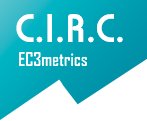Participando en investigaciones inclusivas. Un curso de formación en investigación desde el punto de vista de los participantes con discapacidad intelectual
Abstract
Keywords
References
Abell, S., Ashmore, J., Beart, S., Brownley, P., Butcher, A., Clarke, Z., Combes, H., Francis, E., Hayes, S., Hemmingham, I., Hicks, K., Ibraham, A., Kenyon, E., Lee, D., McClimens, A., Collins, M., Newton, J. y Wilson, D. (2007). Including everyone in research: The Burton Street Research Group. British Journal of Learning Disabilities, 35(2), 121-124. doi: 10.1111/j.1468-3156.2006.00425.x
Barr, O., McConkey R. y McConaghie J. (2010). Views of people with learning difficulties about current and future accommodation: The use of focus groups to promote discussion. Disability & Society, 18(5), 577-597. doi: 10.1080/0968759032000097834
Beresford, B. (2004). On the road to nowhere? Young disabled people and transition. Child: Care, Health & Development, 30(6), 581-587. doi: 10.1111/j.1365-2214.2004.00469.x
Bigby, C. y Frawley, P. (2010). Reflections on doing inclusive research in the ‘Making Life Good in the Community’ study. Journal of Intellectual Developmental Disability, 35(2), 53-61. Doi: 10.3109/13668251003716425
Bigby C., Frawley P. y Ramcharan P. (2014). Conceptualizing inclusive research with people with intellectual disability. Journal of Applied Research in Intellectual Disabilities 27(1), 3-12. doi: 10.1111/jar.12083
Burke, A., McMillan, J., Cummins, L., Thompson, A., Forsyth, W., McLellan, J., Snow, L, Fraser, A., Fraser, M., Fulton. Ch., McCrindle, E., Gillies, L., LeFort, Sh., Miller, G., Whitehall, J., Wilson, J., Smith, J. y Wright, D. (2003). Setting up participatory research: a discussion of the initial stages. British Journal of Learning Disabilities, 31(2), 65-69. doi: 10.1046/j.1468-3156.2003.00183.x
Cambridge P. y McCarthy M. (2001). User focus groups and Best Value in services for people with learning disabilities. Health and Social Care in the Community 9(6), 476-489. doi: 10.1046/j.0966-0410.2001.00328.x
Carey, E., Salmon, N., y Higgins, A. (2014). Service user’s views of the Research Active Programme. Learning Disability Practice, 17(4), 22-28. doi: 10.7748/ldp2014.04.17.4.22.e1511
Corbetta, P. (2007). Metodología y técnicas de investigación social. Madrid: McGraw Hill.
Cumming, T.M., Strnadová, I., Knox, M. y Parmenter, T. (2014). Mobile Technology in inclusive research: tools of empowerment. Disability & Society, 29(7), 999-1012. doi: 10.1080/09687599.2014.886556
European Commission (2009). Report of the Ad Hoc Expert Group on the Transition from Institutional to Community-based Care. Directorate-General for Employment, Social Affairs and Equal Opportunities
Flood, S., Bennett, D., y Melsome, M. (2012). Becoming a researcher. British Journal of Learning Disabilities, 41(4), 288-295. doi: 10.1111/j.1468-3156.2012.00756.x
FRA- European Union Agency for Fundamental Rights (FRA) (2013). Choice and control: the right to independent living. Experiences of persons with intellectual disabilities and persons with mental health problems in nine EU Member States. Luxembourg: Publications Office of the European Union.
Fullana, J.; Pallisera, M.; Català, E. y Puyalto, C. (2016). Evaluating a Research Training Programme for People with Intellectual Disabilities Participating in Inclusive Research: The Views of Participants. Journal of Applied Research in Intellectual Disabilities. doi: 10.1111/jar.12262
Johnson, K., Minogue, G. y Hopkins, R. (2014). Inclusive Research: Making a Difference to Policy and Legislation. Journal of Applied Research in Intellectual Disabilities, 27(1), 76-84. doi: 10.1111/jar.12085
Naciones Unidas (2006). Convención de las Naciones Unidas sobre los Derechos de las personas con Discapacidad. Recuperado en http://www.un.org/disabilities/convention/conventionfull.shtml (14 de julio de 2014)
Nind, M., Chapman, R., Seale, J., y Tilley, L. (2015). The Conundrum of Training and Capacity Building for People with Learning Disabilities Doing Research. Journal of Applied Research in Intellectual Disabilities. doi:10.1111/jar.12213
O’Brien, P., McConkey, R.y García-Iriarte, E. (2014). Co-researching with people who have intellectual disabilities: Insights from a National Survey. Journal of Applied Research in Intellectual Disabilities, 27(1), 65-75. doi: 10.1111/jar.12074
Pallisera, M., Vilà, M. y Fullana, J. (2014). Transition to adulthood for young people with intellectual disability: Exploring transition partnerships from the point of view of professionals in school and postschool services, Journal of Intellectual and Developmental Disability. doi: 10.3109/13668250.2014.938032
Pallisera, M., Puyalto, C., Fullana, J., Vilà, M., Martín, R. (2015). Una experiencia de investigación inclusiva. Personas con discapacidad intelectual como asesoras en una investigación sobre transición a la edad adulta. Revista Iberoamericana de Educación, 69(2). 147-166.
Parrilla, A. y Sierra, S. (2015). Construyendo una investigación inclusiva en torno a las distintas transiciones Educativas. Revista Electrónica Interuniversitaria de Formación del Profesorado, 18(1), 161-175. doi: http://dx.doi.org/10.6018/reifop.18.1.214381
Saldaña J. (2009). The coding manual for qualitative researchers. Los Angeles, CA: Sage Publications.
Salmon, N., Carey, E. y Hunt, A. (2014). Research Skills for People with Intellectual Disabilities, Learning Disability Practice, 17(3), 27-35. Doi: 10.7748/ldp2014.03.17.3.27.e1512
Salmon, N., García-Iriarte, E., Burns, E.Q. (2015). Research Active Programme: A pilot inclusive research curriculum in higher education. International Journal of Research &Method in Education. DOI: 10.1080/1743727X.2015.1099154
Stake, R. (2006). Evaluación comprensiva y evaluación basada en criterios. Barcelona: Paidos.
Strnadová, I., Cumming, T., Knox, M., Parmenter, T. y Welcome to Our Class Research Group (2014). Building an Inclusive Research Team: The importance of team building and skills training, Journal of Applied Research in Intellectual Disabilities, 27(1), 13-22. doi: 13-22. 10.1111/jar.12076
Swartz, L. (2009). Building Disability Research Capacity in Low-Income Contexts: Possibilities and Challenges. M. MacLachan y L. Swartz. Disability and International Development: Towards inclusive Global Health (91-103). New York: Springer.
Swartz, L. (2016). Research Training and the Organizational Politics of Knowledge: Some Lessons from Training Disabled Researchers in Southern Africa. E. García Iriarte, R. McConkey y R. Gilligan (Eds). Disability and Human Rights. Global Perspectives (259-272). London: McMillan Education.
Walmsley, J. (2004). Involving users with learning difficulties in Health improvement: lessons from inclusive learning disability research. Nursing Inquiry. 11(1), 54-64. doi: 10.1111/j.1440-1800.2004.00197.x
Walmsley, J. y Johnson. K. (2003). Inclusive Research with People with Learning Disabilities: Past, Present and Future, London: Jessica Kingsley Publishers.
Ward, L. y Simons, K. (1998). Practising Partnership: Involving People with Learning Difficulties in Research, British Journal of Learning Disabilities. 26(4), 128-131. doi. 10.1111/j.1468-3156.1998.tb00067.x
Refbacks
- There are currently no refbacks.
Indexación:
 |  |  |
 |  |  |
-
| ISSN: 1889-4208 / e-ISSN: 1989-4643 | |
 Este trabajo se autoriza con una licencia Creative Commons Asignación 4.0 Internacional.
Este trabajo se autoriza con una licencia Creative Commons Asignación 4.0 Internacional.
